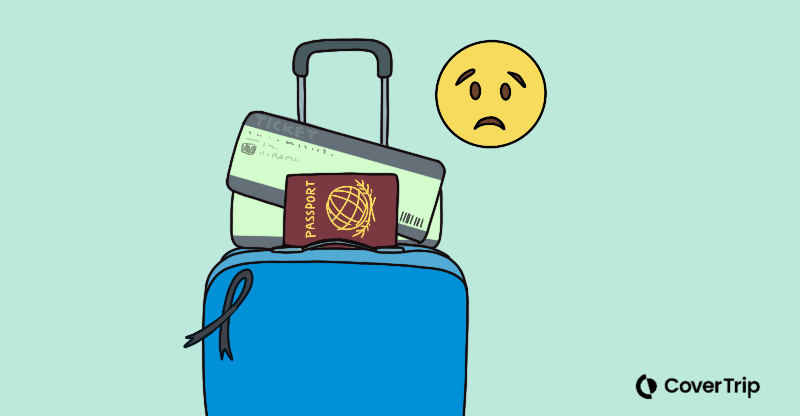How to get a bereavement fare
20 May 2022
When a loved one passes away, you may need to book a last-minute flight … and those can be expensive. This is where a bereavement fare could come in handy. A bereavement fare is a discounted airline ticket for grieving passengers who’ve experienced a death, or have an imminent death, of a family member.
At one time, all three US legacy carriers―American, Delta, and United―offered substantially discounted bereavement fares to passengers booking flights on short notice due to a deceased or dying relative. Unfortunately, some travelers were scamming the system, and the airlines noticed a lot of family members were dying right before holiday weekends. In 2014, American and United ended the practice.
Here’s what you need to know about bereavement fares.

Not all airlines offer bereavement fares
Some airlines still offer a discount when traveling to a funeral or to the bedside of a family member who is dying. The following airlines have formal, published policies for bereavement fares (click to read the policies):
No friends – just immediate family
Friends are the family you choose, right? If only that were so to the airlines. Bereavement fares apply only to the death of an immediate family member.
We looked up some of the airlines that offer bereavement fares and found that Alaska Airlines defines immediate family as:
- A spouse or domestic partner
- A child or stepchild
- A parent (mother, father, stepmother, or stepfather)
- Siblings (brother, sister, half-brother, half-sister, stepbrother, or stepsister)
- Grandparents (grandmother, grandfather, step grandparent, or great grandparent)
- A grandchild (granddaughter, grandson, step grandchild, or great grandchild)
- An aunt or uncle
- A niece or nephew
- In-laws (mother-in-law, father-in-law, daughter-in-law, son-in-law, brother-in-law, or sister-in-law)
Most airlines have similarly published lists.
There are lots of rules
If the airline offers a bereavement fare, you’ll have to conform to a host of rules. These are the most common:
- You may need to show proof of documentation, like a death certificate
- You may need to be a loyalty member of the airline, or willing to join (Delta appears to require this)
- You won’t be able to combine the bereavement discount with other loyalty benefits
Individual airlines may have other rules too.
Here are your 3 best options:
1. Call an airline that offers bereavement fares and have these details handy:
- Deceased or dying person’s name
- Your relationship to them
- Name and phone number of the hospital, hospice, or funeral home
- Name of the doctor (if applicable)
2. Try asking for a fee waiver on any airline without an official policy
Most airlines still permit their staff to exercise some discretion over the phone, and this could be your best bet for getting a discount. For example, you could ask to have the telephone booking fee or last-minute award booking fee waived.
Pro tip: When you arrive at the airport, you could politely ask to be added to the standby list for an earlier flight. Sympathetic airline staff may be willing to bend the rules to help you out, especially if you can offer some supporting proof like an emergency email message, voicemail, or death certificate.
3. Apply after your bereavement trip
When we looked at some of the rules for bereavement fares, we found something interesting. Air Canada offers the option to travel first, then submit for a refund after. This could be something that other airlines are also willing to do, provided you show them the required proof of documentation.
It could also be helpful in the situation where you don’t have immediate access to the required proof of documentation (aka, a death certificate) when you book the flight.
Bereavement fares aren’t always the cheapest ticket
Keep this in mind: the bereavement fare is usually restricted to a discount on the airlines’ highest published fare. You could have a lot of trouble finding a last-minute deal, so the discount is often not that useful. More often than not, searching for a cheap fare online is the best way to go.
Alternatively, if you’re a loyalty member of the airline, try finding the cheapest fare and then giving the representatives a call to see if they can offer a discount.
One final word
Finally, if a last-minute family emergency or funeral requires you to cancel or interrupt a previously booked trip, trip cancellation and trip interruption insurance could help you recover your losses.
Related topics
Damian Tysdal is the founder of CoverTrip, and is a licensed agent for travel insurance (MA 1883287). He believes travel insurance should be easier to understand, and started the first travel insurance blog in 2006.
